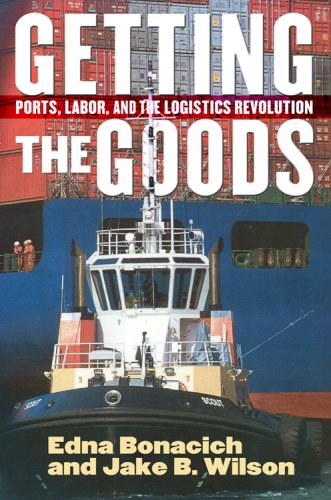

Most ebook files are in PDF format, so you can easily read them using various software such as Foxit Reader or directly on the Google Chrome browser.
Some ebook files are released by publishers in other formats such as .awz, .mobi, .epub, .fb2, etc. You may need to install specific software to read these formats on mobile/PC, such as Calibre.
Please read the tutorial at this link: https://ebookbell.com/faq
We offer FREE conversion to the popular formats you request; however, this may take some time. Therefore, right after payment, please email us, and we will try to provide the service as quickly as possible.
For some exceptional file formats or broken links (if any), please refrain from opening any disputes. Instead, email us first, and we will try to assist within a maximum of 6 hours.
EbookBell Team

4.0
46 reviewsIn Getting the Goods, Edna Bonacich and Jake B. Wilson focus on the Southern California ports of Los Angeles and Long Beach―which together receive 40 percent of the nearly $2 trillion worth of goods imported annually to the United States―to examine the impact of the logistics revolution on workers in transportation and distribution. Built around the invention of shipping containers and communications technology, the logistics revolution has enabled giant retailers like Walmart and Target to sell cheap consumer products made using low-wage labor in developing countries. The goods are shipped through an efficient, low-cost, intermodal freight system, in which containers are moved from factories in Asia to distribution centers across the United States without ever being opened.
Bonacich and Wilson follow the flow of imports from Asian factories, exploring the roles of importers, container shipping companies, the ports, railroad and trucking companies, and warehouses. At each stage, Getting the Goods raises important questions about how the logistics revolution affects logistics workers. Drawing extensively on interviews with workers and managers at all levels of the supply chain, on industry reports, and on economic data, Bonacich and Wilson find that, in general, conditions have deteriorated for workers. But they also discover that changes in the system of production and distribution provide new strategic opportunities for labor to gain power. A much-needed corrective to both uncritical celebrations of containerization and the global economy and pessimistic predictions about the future of the U.S. labor movement, Getting the Goods will become required reading for scholars and students in sociology, political economy, and labor studies.